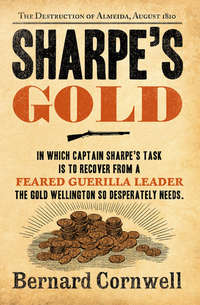Buch lesen: "Sharpe’s Gold: The Destruction of Almeida, August 1810"
Etwas ist schiefgelaufen, versuchen Sie es später noch einmal
Genres und Tags
Altersbeschränkung:
0+Veröffentlichungsdatum auf Litres:
12 Mai 2019Umfang:
316 S. 11 IllustrationenISBN:
9780007338672Rechteinhaber:
HarperCollins